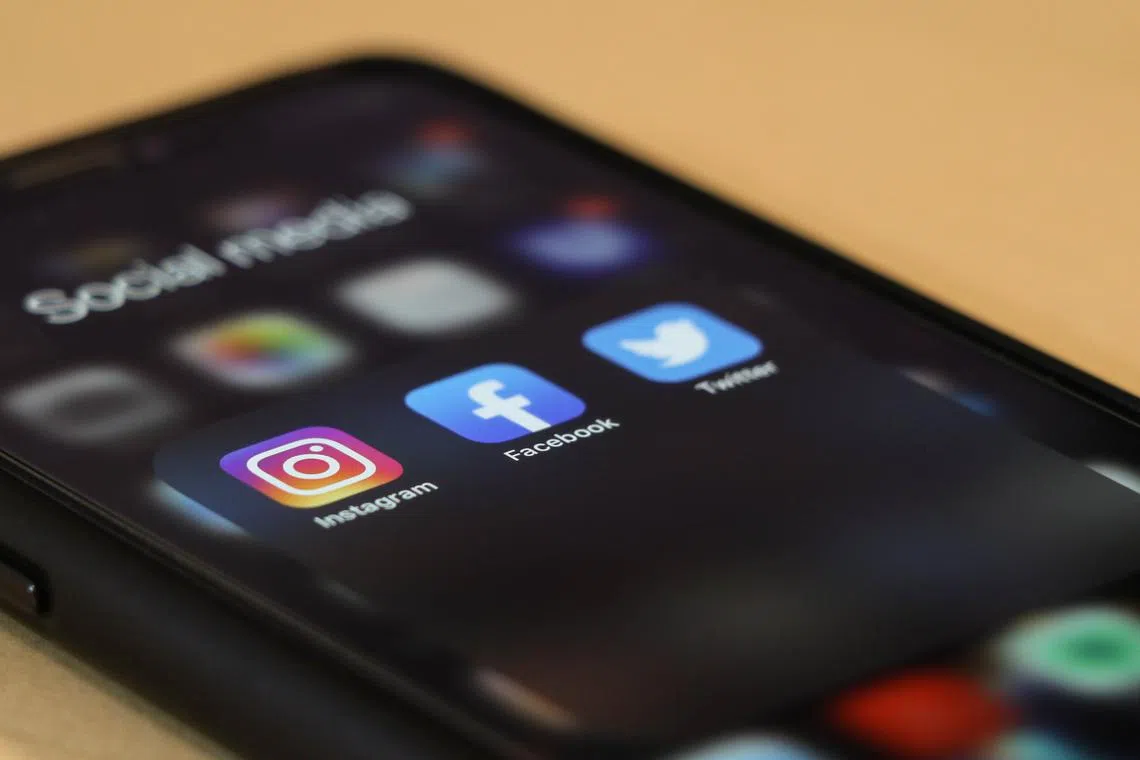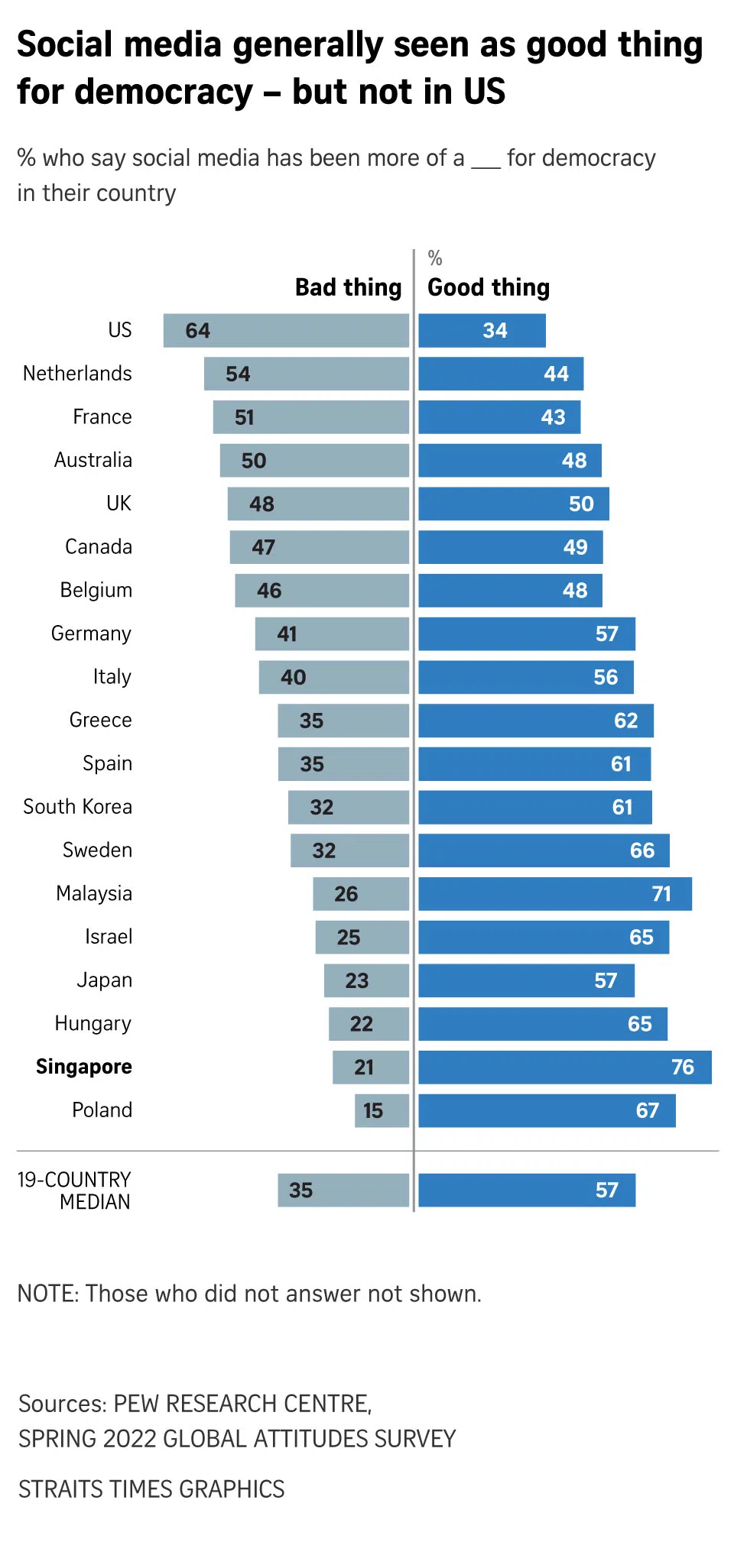3 in 4 Singaporeans say social media boosts democracy in country: Poll
Sign up now: Get ST's newsletters delivered to your inbox

The US by far has the most negative view of social media, while Singapore has the most positive.
PHOTO: UNSPLASH
Follow topic:
WASHINGTON - People in advanced economies have mixed feelings about the impact of social media on democracy, with most saying that social media has made people more divided and easier to manipulate yet also more informed, a survey released on Tuesday found.
Sentiments vary widely across countries, according to the Pew Research Centre’s survey of nearly 25,000 adults in total from 19 advanced economies from February to June 2022.
The US by far has the most negative view of social media, while Singapore has the most positive.
Singapore was one of 19 countries surveyed. The others were Australia, Belgium, Canada, France, Germany, Greece, Hungary, Italy, Israel, Japan, Malaysia, the Netherlands, Poland, South Korea, Spain, Sweden, the United Kingdom and the United States.
A median of 57 per cent of respondents across all countries surveyed view social media as more of a good thing for democracy.
Researchers said their findings gave a more nuanced picture of the public perception of social media, which includes Facebook, Twitter, WhatsApp and other platforms where people get their news and express their opinions.
They wrote: “The sphere of social media has become a new public space for discussing – and often arguing bitterly – about political and social issues. And in the mind of many analysts, social media is one of the major reasons for the declining health of democracy in nations around the world.
“However... ordinary citizens see social media as both a constructive and destructive component of political life, and overall, most believe it has actually had a positive impact on democracy.”
A third of US adults think social media has been good for democracy, while the rest say it has had a bad impact on democracy. But three-quarters of Singaporeans said social media has strengthened democracy in their country.
Americans consistently gave the most negative assessments of how social media has affected politics and society, the survey found.
Some 79 per cent in the US believe access to the Internet and social media has made people more divided about their political opinion, the highest share among the 19 countries surveyed.
In contrast, about 51 per cent of Singaporeans believe the same, the third-lowest behind Japan and Malaysia.

Similarly, 69 per cent of Americans said the Internet and social media have made people less civil in how they talk about politics, again the highest among the nations polled.
Singapore was the only country where about half of those surveyed saw these technologies increasing civility, the report noted.
One reason for the differing perspectives was the extent of misinformation in different societies. Those who view the spread of false information online as a major threat to their country are less likely to say that social media is a good thing for democracy, said the report.
But many respondents also believe that despite social media’s negative influences, it also helps people be more informed and raises awareness about sociopolitical issues.

On balance, two-thirds of those surveyed said it is also effective at changing people’s minds and getting elected officials to pay attention to issues.
Singaporeans consistently had among the most positive opinion of social media’s ability to raise awareness of issues, change people’s minds and influence policy decisions.
Pew researchers Laura Silver and Laura Clancy, who also compared the survey results with previous polls in emerging economies, wrote: “There is a shared sense that social media gives people a voice in politics.
“Those in the UK and Singapore are particularly positive on this question, with more than eight in 10 saying social media is an effective way to draw attention to issues.”

